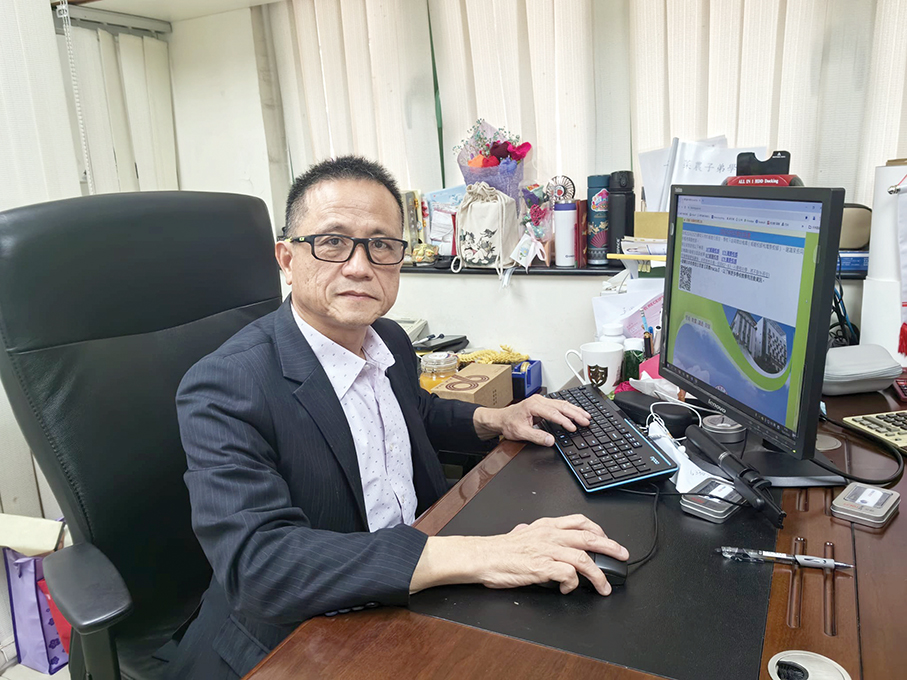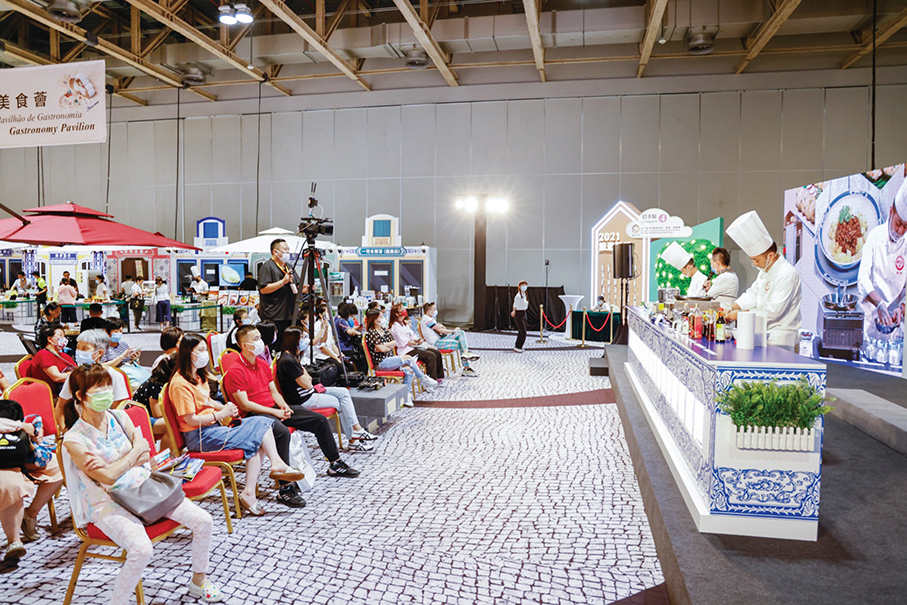In recent years, there has been increasing concern about students’ mental health, with the findings of a survey showing that 90 percent of local students were facing different degrees of pressure from schoolwork – and in a phone interview with the Post yesterday, The Chinese Educators Association of Macau Vice President Vong Kuoc Ieng listed the main sources of students’ psychological stress such as the excessive use of social media during the three-year COVID-19 pandemic (January 2020-December 2022), as well as the lack of face-to-face communication in general and parents’ companionship.
The findings of the survey conducted by the General Association of Chinese Students of Macau on June 6 to 16 last year, which were released last November, show that among 1,769 secondary school students, 90 percent said they were facing different degrees of pressure from schoolwork, with 34 percent of them saying they felt “very much” under pressure from their homework arrangements, while only about 10 percent said that they felt “almost no” pressure from their respective school’s homework arrangements.
Excessive use of electronic products
Vong, principal of Choi Nong Chi Tai (“Farmer Children’s”) School, said that the impact of social media on young people’s mental health should not be ignored, adding that students were generally immature, and with the “negative” impact of electronic gadgets such as mobile phones, students would quietly undergo emotional changes, which “are secretive and dangerous”, especially when their previous social interaction was face-to-face with their peers, teachers, and parents.
As early as 2015, the UK’s Department of Health and Social Care pointed out that children’s excessive use of electronic gadgets and spending too much time on the internet could lead to mental health problems, such as loneliness, loss and anxiety, among them, the risk of these problems is greater for children who spend time on screens for more than four hours a day. Vong said that with the popularity of electronic gadgets, online communication “may not all be positive information”, coupled with the influence of their peers, the negative impact of electronic gadgets on students’ social emotions and cognition was growing.
Lack of parental companionship
Students’ mental health problems are the result of accumulation over time. Among them, students’ negative emotions, apart from the influence of electronic gadgets, are also related to the local working environment, according to Vong, who underlined that parental “companionship” is essential when negative emotions arise.
However, he admitted that in Macau, as a society operating 24 hours a day, with many parents working shifts, the time they spent on their children’s education was in fact “very insufficient”, which could be seen from the increase in tutorial centres that have sprung up especially since the pandemic: “Parents do not seem to be paying enough attention to academic matters”.
Physical education activities versus static activities
Among the current school education modules, Vong said he believed that there was no better option that could exert a positive influence on the psychological growth of students than physical education activities, saying that physical activities could, in fact, benefit students, of which aerobic exercises, from a psychological viewpoint, were a way to allow them to release their emotions: “Sometimes they fall down and get hurt, and sometimes they fail, so that students can learn from their failures and grow up with a better outlook”.
However, he was quick to add that due to the lack of activity facilities in Macau, it seemed that local schools could mainly only offer relatively static activities regarding science and technology, reading and musical instruments, while, in terms of youngsters’ overall activities, sports activities “have not been greatly popularised”.
“Negative emotions can be as contagious as the COVID-19 virus”, said Vong, who underlined that such “contagion” could not be prevented through injections or medicines, but the students should instead be cared for and understood through an overall cooperative atmosphere. Vong called for the creation of more platforms for youngsters to deal with the frustration of failure, instead of only enjoying success.
In view of the psychological problems that exist in the current student population, Vong said that both the education sector and the government should continue to pay close attention to the issue of students’ mental health in the future, strengthen the training of teachers in tackling students’ mental health problems and implement education sector reforms, increasing the number of courses on mental health education, while also encouraging students to attend mental health courses and counselling sessions.

This undated file photo provided by The Chinese Educators Association of Macau Vice President Vong Kuoc Ieng, principal of Choi Nong Chi Tai School, shows him posing in his office.








